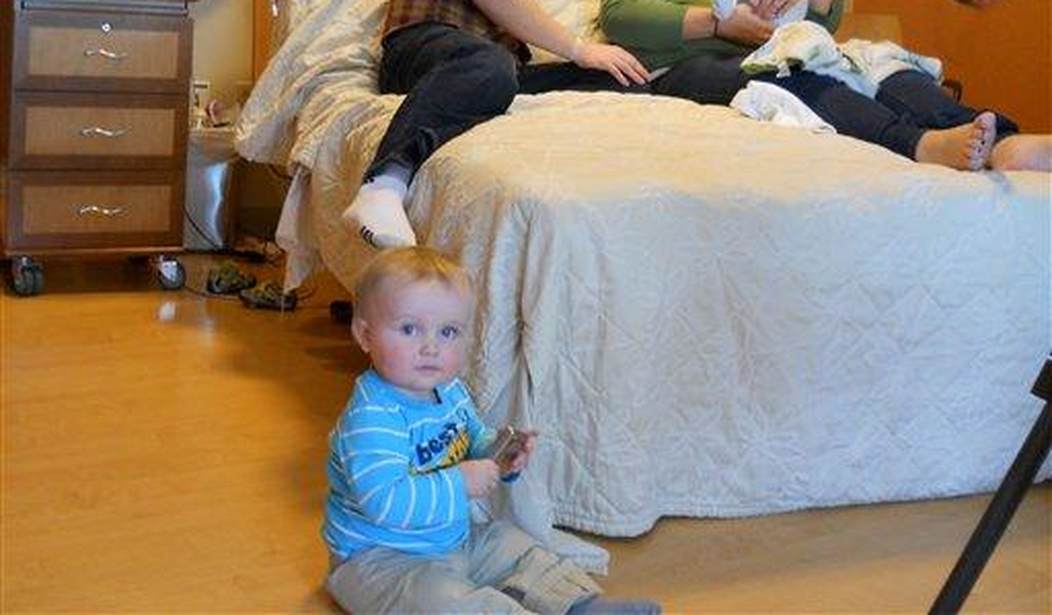As we celebrate the Christmas season, we remember Joseph who courageously and obediently answered God’s call to become Jesus’ earthly father. His example from two thousand years ago reminds us even today of the importance of fathers, and it is particularly striking as the United States experiences an epidemic of fatherlessness.
Our country has a clear and ironically ‘present’ problem with the absent father. With one out of three homes lacking a biological father and one out of four homes having no father figure at all, Dad is missing in action for many young Americans. With his critical role left undone, we are seeing dire consequences. A study by the National Fatherhood Initiative (NFI) shows children who grow up in fatherless homes face increased risks of infant mortality, poverty, teen pregnancy, domestic abuse/neglect, substance abuse, obesity, and school dropout rates, among other factors.
On the other hand, however, NFI also provides enlightening analysis as to what factors help predict fatherhood outcomes, and the top two which correlate with positive fatherhood include 1) involvement in the mother’s pregnancy and 2) employer support for his involvement in the lives of his children.
This is because pro-family policies which encourage men to spend time with their pregnant partner and children recognize the proven scientific differences between male and female brains. While studies have shown the brains of mothers are able to experience vast neurochemical changes during their pregnancy, research has found that fathers’ brains experience chemical transformation primarily during infant interaction. Many times, men do not feel like the fathers they biologically are until they spend time with their child, becoming more instinctually and emotionally bonded.
Recommended
Such research shows that encouraging flexibility during pregnancy (for men to attend prenatal appointments, etc.) and granting paternity leave is essential to winning this fight against fatherlessness. In particular, the latter allows fathers to feel the stake they hold in the family unit, making them much less likely to desert their role. That’s why paternity leave may be one of the needed solutions to our crisis — and everyone has a role to play in establishing it as common standard.
For companies that don’t want to be complicit in the negative outcomes of children raised in fatherless homes, they must support paternity leave programs, incentivizing the family. Multimillion dollar corporations can afford to leverage their power to take action to alleviate the needs of their employees’ families.
Some have taken the opposite approach, however, with companies like Dick’s Sporting Goods taking a step in the opposite direction to pay for the abortion travel of the wives of their male employees. In this way, companies both minimize fatherhood and monopolize employees as commodities, not treating them as humans with equal value and dignity.
Employees without the ability and support to maintain a proper work-life balance suffer from psychological and physical problems, costing an estimated $125 billion to $190 billion a year in healthcare spending in the United States due to their burnt-out states. When fathers are not given the time to recover from stressors and major changes in their home life, burn-out effects such as decreases in work performance, mood disorders, and risks to physical and mental health will inevitably skyrocket.
People are simply not as effective when they are struggling with mental health, often a negative outcome associated with abortion (even among men). Even just for financial reasons, business leaders should then prioritize paternity leave to allow men time to adjust to having a new family member. Hopefully, the decision could be more than just a smart business move but also a compassionate choice to help to heal our culture.
The next steps for men without access to paternity leave is to fight for it. Men are biologically designed to be bothproviders and protectors, not to forsake their children for the sake of profit. Men need to proactively protect their children by acknowledging the future needs they will experience as fathers, carving out the essential time to solidify their family unit in a time of beautifully difficult change.
In addition, the human rights community needs to act to keep employers accountable for the protection of the rights of children and their parents. Infant mortality, poverty, and health disparities are all broadly considered to be issues the human rights lobby takes up so why should the upstream cause of the absent father not be considered, as well?
If we want to fix this problem, we can’t just treat the symptoms. We must cure the root cause, and paternity leave is an excellent way to begin. It’s a fight that can’t be won without many helping hands, but what better gift to give children this Christmas season than their Dad?
Gavin Oxley is Students for Life of America’s lead operations supervisor and medical/law coordinator, as well as the founder/CEO of Future Medical Professionals for Life.

























Join the conversation as a VIP Member